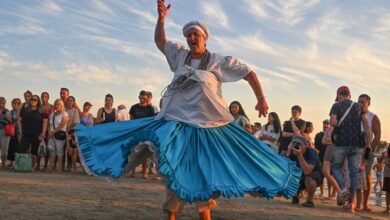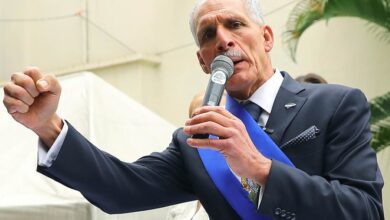Uruguay’s Past Guerrilla Hero Who Embraced a Shack Over a Palace

José “Pepe” Mujica, Uruguay’s beloved former president, has died at the home he shared with his wife, Lucía Topolansky. Through a life of modesty, activism, and service, he inspired millions worldwide to embrace humility, compassion, and resilience.
The Shack That Shaped a Presidency
José “Pepe” Mujica never felt at home in Uruguay’s three-story presidential residence, with its grand chandeliers, marble stairs, and ornate Louis XV furniture. Speaking to the BBC during his term, he famously quipped that having a new job did not mean he needed a new address.
When he assumed office in 2010, he chose to stay in the same “chacra” (small farm) on the outskirts of Montevideo that he and his wife had occupied for decades. It was a modest, ramshackle property, more a “cluttered, three-room shack the size of a studio apartment,” as described to the BBC. With a wood stove for heat, shelves laden with books, and jars of pickling vegetables adorning every corner, Mujica’s homestead illustrated his lifelong commitment to living simply.
Over the years, he sold chrysanthemums from the farm, driving the produce to local markets in his iconic sky-blue 1987 Volkswagen Beetle. Friends and neighbors recall him and his wife, Lucía—who would later become Uruguay’s vice president—tending to flowers, vegetables, and their three-legged dog, Manuela, who trotted faithfully by their side. Despite winning the nation’s highest office, Mujica remained true to the environment and community he had always felt most at ease.
A Life of Sparse Comforts and Grand Ideals
Before he came to be revered as “the world’s poorest president,” Mujica was a revolutionary. He was part of the Movimiento de Liberación Nacional-Tupamaros, a guerrilla group that fought against Uruguay’s dictatorship in the 1960s and 1970s. Imprisoned for over a decade—much of it spent in solitary confinement—Mujica emerged with his political resolve stronger than ever. Yet he also carried the scars of a life lived on the edge.
Upon his release in the late 1980s, he and Lucía purchased the 14-hectare farm near Rincón del Cerro, determined to find solace in nature after years behind bars. There, surrounded by ligustrum hedges, yucca plants, oaks, and araucarias, Mujica developed the introspective philosophy he would bring to politics. Indeed, world leaders of every stripe—kings, prime ministers, philosophers—would sit on his humble benches, taking in the tranquil scenery while discussing global affairs.
As former visitors told the BBC, dignitaries encountered a setting quite unlike any official statehouse. There was no polished motorcade or palace gardens, just two small greenhouses, produce fields, and a tractor puttering between rows of alfalfa and tomatoes. The occasional hum of tango music underscored Mujica’s easygoing approach.
The Global Spotlight and an Iconic Beetle
During his presidency from 2010 to 2015, Mujica’s reputation as an uncommonly austere leader reached far beyond Uruguay. Foreign media and global politicians flocked to his farm, often stepping out of pristine vehicles only to walk across muddy paths toward an unpretentious wooden gate. The BBC notes that visitors included former Spanish King Juan Carlos I, Argentina’s then-president Cristina Fernández, and philosopher Noam Chomsky, with whom Mujica shared lengthy discussions that resulted in a documentary and a book.
Perhaps no symbol defined Mujica better than his bright blue 1987 Volkswagen Beetle, known in the region as a “Fusca.” It was more than a mere mode of transportation—it was a tangible statement about the distance he kept from extravagance. Once, an Arab sheik famously offered him one million dollars for the Beetle, which Mujica declined. He explained that the car had sentimental worth; it was a gift from friends and thus irreplaceable.
According to the BBC, Mujica even drove that very Beetle to cast his vote in the 2014 presidential and legislative elections, refusing special security escorts despite still being head of state. The vehicle became a global icon of frugality and authenticity, beloved by many Uruguayans who admired their president for proving that public office could coexist with a life free from luxury.
A Final Rest Beside Manuela
When Hurricane Maria battered the region in past years, Mujica’s modest homestead revealed its fragility. Repairs were made, yet the farm’s heartbeat remained the same. Even the transparent plastic of the greenhouse, rippling in the wind, could not overshadow the brilliance of the flowers inside—a perfect metaphor for Mujica’s resilience.
In his later interviews with the BBC, he would walk visitors to a towering sequoia tree on the property, explaining his wish to be cremated and have his ashes placed beneath the same trunk where the remains of Manuela—his three-legged dog—were buried. “When it’s my last trip, just cremate me and bury me around here,” he said, gesturing to the quiet patch of land where sunlight sneaked through the canopy. “Manuela was the most faithful member I ever had in government,” he once joked, affirming his special bond with his loyal companion.
With Mujica’s passing on Tuesday, Uruguay and the wider world reflect on a life that championed empathy, prioritized social welfare, and demonstrated how personal sincerity can inform public leadership. The “chacra” in Rincón del Cerro—the site of countless official and unofficial visits—will forever stand as a testament to the man who welcomed presidents and peasants into his humble abode.
Also Read: Peruvian Titan Bids Farewell: Mario Vargas Llosa’s Influence
Though José “Pepe” Mujica did not seek riches or fame, he unexpectedly found both through his example. His story became a rallying cry for simpler, kinder governance. As Uruguay honors his legacy, that small flower farm on the outskirts of Montevideo carries on, the greenhouse still fluttering in the breeze, the soil still yielding crops. The bench once shared by royalty and revolutionaries sits empty, awaiting the next visitor who hopes to glimpse the spirit of a man who lived his ideals—right to the end.




